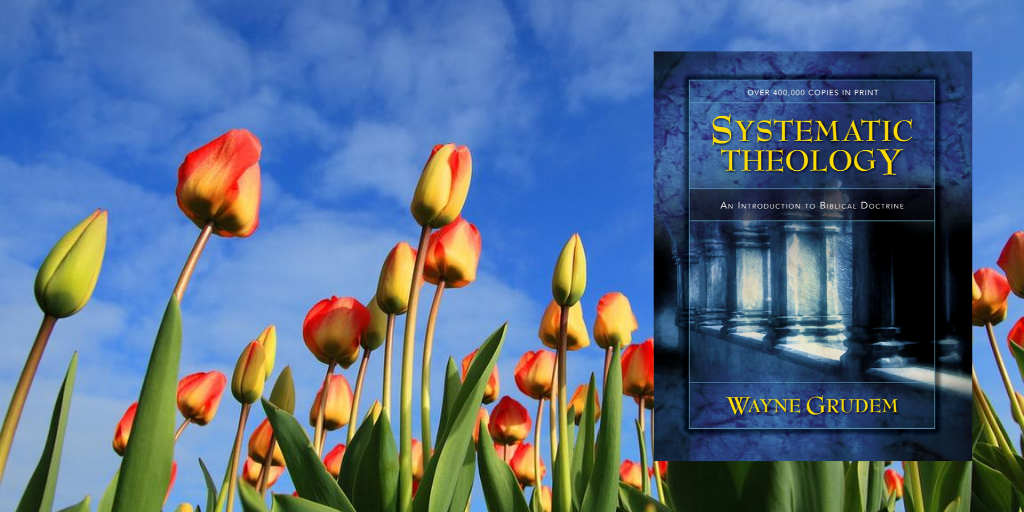Reading Systematic Theology with Wayne Grudem – God’s Providence: If God controls all things, how can our actions have real meaning? What are the decrees of God?
This post is part of a 50+ post series from the classic work by Wayne Grudem (PhD, Cambridge), Systematic Theology: An Introduction to Biblical Doctrine. The aim of each post is to provide an overview of each chapter in the book and related resources for each topic.
Synopsis of Chapter
In this chapter of Systematic Theology, Wayne Grudem reviews providence. He defines providence as: “God is continually involved with all created things in such a way that he (1) keeps them existing and maintaining the properties with which he created them; (2) cooperates with created things in every action, directing their distinctive properties to cause them to act as they do; and (3) directs them to fulfill his purposes.”
Grudem reviews these three aspects of providence from a Reformed or Calvinist perspective. However, he acknowledges another classic perspective from the Arminians. He includes the Arminian rejoinder to the Reformed ‘providence’ then responds to their objections. This was a thick chapter and like usual, I won’t review everything, but I hope to cover the most important points.
Preservation: God Keeps All Created Things
The first aspect of providence is God’s preservation. This means God “keeps (created things) existing and maintaining the properties with which he created them”
In Hebrews 1:3b, Scripture declares that “(Christ) upholds the universe by the word of his power.” So God is not some sort of Deity who created the world and abandoned it. Instead, he consciously and currently props up the universe by his active word right now. At this moment.
In other words, if God were to cease to uphold everything by his word then we would cease to be. Elihu said in Job, “If he should set his heart to it and gather to himself his spirit and his breath, all flesh would perish together, and man would return to dust.” (Job 34:14-15) That includes our lives, but it also includes our very existence. The universe requires God’s constant preserving power because “in him all things hold together” (Colossians 1:17) He holds all the atoms in place and causes gravity to function. He is the unifying force in the physical world and in the spiritual world.
Concurrence: God Cooperates with All Created Things
The second aspect of God’s providence is concurrence. In concurrence, “God cooperates with created things in every action, directing their distinctive properties to cause them to act as they do.” Concurrence is an expansion of God’s preserving activity – it is how he works with the actions of other creatures.
God is in control of all things but humans somehow play a part. He “works all things according to the counsel of his will.” (Ephesians 1:11c). And those same “all things” includes things we do like…
- Getting gas for our car.
- Watching a game.
- Calling a friend.
- Eating lunch.
- Sitting still.
Strange as it may seem, but it is possible events are fully caused by God (100 percent) in one sense and they fully caused by people in another sense (100 percent). Though divine and creaturely causes work in different ways. This aspect of concurrence is true of nature, animals, “chance” events, the affairs of nations, and every aspect of our lives.
Providence in Evil?
But this perspective begs an important question: what is God’s part in evil?
Scripture never shows God doing anything wicked. And it never blames God in taking pleasure in evil. God may participate (indirectly) in bringing about a nefarious event, but he is always held blameless in his actions. One verse in helpfully illustrates God’s relationship with evil. After the Patriarch Joseph was wrongfully treated and sold into slavery by his brothers, God redeemed the vile situation. After years of reflection, Joseph rightfully declared to his brothers who had betrayed him:
“As for you, you meant evil against me, but God meant it for good, to bring it about that many people should be kept alive, as they are today.” (Genesis 50:20)
There was nothing righteous in Joseph’s brothers actions. But God still used the evil actions of his brothers to give Joseph an exalted place in Egypt’s government so he could save his extended family from starvation. His brothers meant evil for Joseph, but God meant good for Joseph and many others.
The same is true for all of God’s actions.
It’s not always easy to see God’s providence in evil. Though we can confess the ultimate goodness of God in all actions and simultaneously acknowledge real evil in the world where God rules, it can be difficult to reconcile these two facts. In cases where evil just seems so evil, it is difficult to see how God would orchestrate these events. This is one area of theology that we must confess is a mystery.
Government: God Directs All Things To Accomplish His Purpose
A third aspect of providence is government. In government, we see how God “directs all things to fulfill his purposes.” As the Psalmist declared, “His kingdom rules over all.” (Psalm 103:19)
An important aspect of God’s government is his providential government or “secret will”. Taken from Deuteronomy 29:29, “The secret things belong to the LORD our God, but the things that are revealed belong to us and to our children forever, that we may do all the words of this law.”
God’s ways are not always revealed. But whatever transpires, he is working out to accomplish all his holy, secret will. Sometimes he will tell us what he’s doing (the things that are revealed), but other times he won’t (the secret things belong to the LORD).
Arminian Response to God’s Providence
The above perspective on God’s providence is often understood as Reformed or Calvinist. However, there is a very influential alternative perspective known as Arminian. This view disagrees with Calvinists and accuses the other side of misapplying certain verses, making God responsible for sin, downgrading human actions, and encouraging fatalism.
These seem to be short-sighted critiques of the Reformed understanding of providence. There are Scriptural responses to every one of these critiques if Arminians were interested in a reasoned response. Moreover, the Arminians’ selective application of verses is also disheartening given that many Arminians say they believe the Bible. It seems Arminians aim to impose an external hermeneutic on the Bible to accommodate their notion of ‘free will’ (something the Scripture never affirms in so many words).
In Conclusion: Our Actions Mean Something
In light of God’s overarching rule over all of creation, it can seem fatalistic on the surface. After all, if God governs the world in such a way that his entire will is accomplished, then why do anything? God will do what he will do and he doesn’t need our help to do it.
But this perspective forgets another major principle in Scripture: human responsibility.
Human actions mean something. We are responsible for our actions and they result in actual consequences. One such action mentioned in Scripture is prayerlessness. James 4:2c says, “You do not have, because you do not ask.” To James, the reason people do not have something is because they did not pray. They didn’t do something. So God may be in control of all things, but our actions lead to actual results. Whether we are to pray, go to work, serve orphans, or whatever, we must act. And God will hold us responsible for our actions (2 Corinthians 5:10).
“And we know that for those who love God all things work together for good, for those who are called according to his purpose.” (Romans 8:28)
Special Terms
- Arminian
- Calvinist
- concurrence
- decrees of God
- free choices
- free will
- government
- middle knowledge
- preservation
- primary cause
- providence
- Reformed
- secondary cause
- voluntary choices
- willing choices
Resources: Wayne Grudem
- Wayne Grudem: Book: Systematic Theology: An Introduction to Biblical Doctrine
- Wayne Grudem: 148 Lectures on Systematic Theology
Related Resources
- OpenBible.info: Verses on Providence
- John Piper: The Providence of God
- Stephen Witmer: Don’t Underestimate the Doctrine of Providence
- Kyle Butt: God’s Providence and the Problem of Evil








